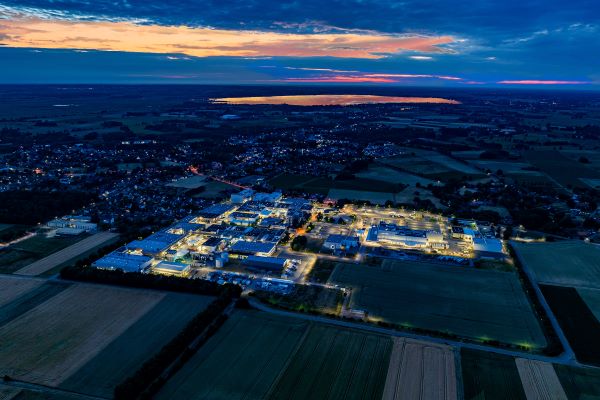BASF in Lemförde successfully completes recertification according to REDcert2

BASF site, Lemförde
BASF completes the certification program International Sustainability and Carbon Certification (ISCC) PLUS at its production site in Lemförde, Germany to produce biomass-balanced thermoplastic polyurethanes. Also, the annual recertification according to REDcert2 was successfully completed for numerous thermoplastics and polyurethane systems. This allows BASF to expand its sustainable product portfolio and continue its commitment to supporting customers in achieving their sustainability goals.
"With this drop-in solution, our customers receive a product with a reduced CO2 footprint compared to conventional materials, without requiring any technical changes on their part. Reducing the need of fossil resources and greenhouse gas emissions are highly relevant for today's producers and consumers," says Artur Pfeif, Product Management TPU at BASF Performance Materials Europe.
The certification according to ISCC PLUS covers the entire value chain and ensures that the certified share of fossil raw materials is replaced by renewable raw materials. This paves the way for BASF to offer mass balance certificates to its customers for specific products of thermoplastic polyurethanes. It is an internationally recognized certification scheme for mass balance methodology.
Also, the European standard REDcert2 ensures the correct allocation of renewable resources in BASF's value chain. REDcert2 and ISCC PLUS are sustainability certification schemes for the use of sustainable biomass as raw material in the chemical industry. Both certificates confirm that sustainable biomass has been correctly allocated as a raw material in the chemical production system and are awarded based on on-site audits by independent auditors.
When claiming sustainability of a sales product, traceability of renewable or recycled raw materials must be proven as part of the mass balance certification process. "With this important step, complete transparency regarding high sustainability requirements can be achieved across the entire value chain, also for our customers," summarizes Eileen Orlich, Sustainability Management at BASF Performance Materials Europe.
Subscribe to our newsletter & stay updated.